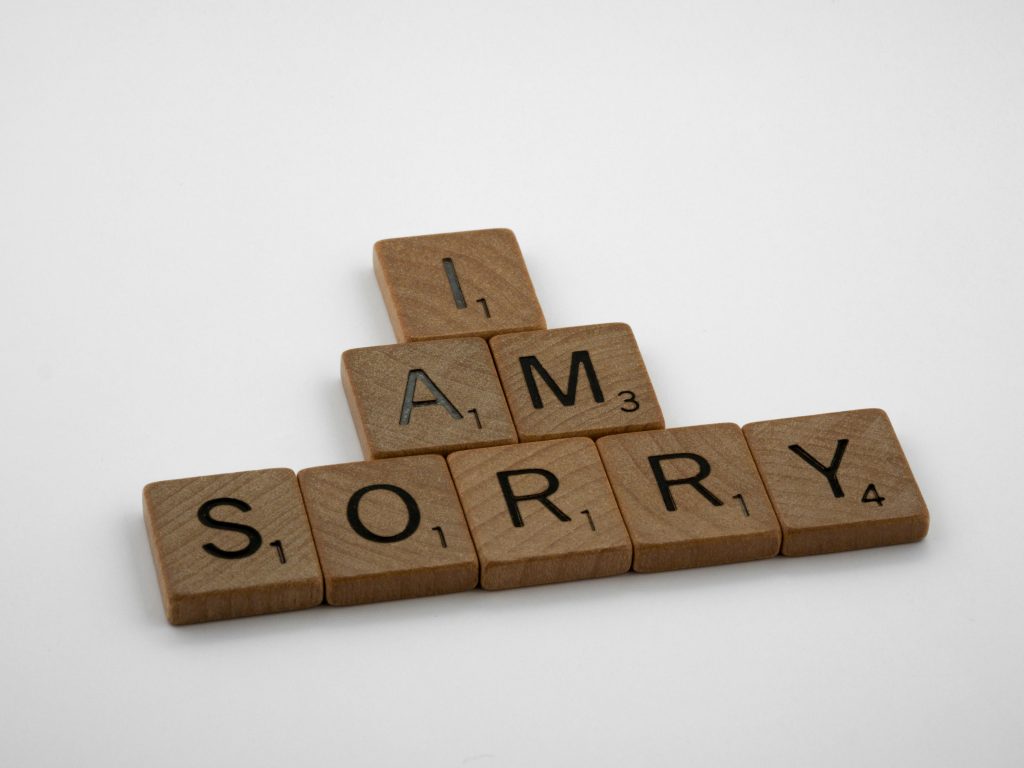Table of Contents
That “perfect” relationship might not be so perfect after all. If you’re constantly second-guessing yourself or walking on eggshells around your partner, it’s time to pay attention to the warning signs before they escalate into something worse. Is your relationship toxic? Recognizing toxic patterns early can save you years of emotional damage and help you build healthier relationships in the future.
1. The Silent Treatment Becomes Your New Normal

What starts as “needing space” after arguments transforms into days of painful silence. When your partner regularly stops talking to you as punishment, it’s not just childish – it’s a form of emotional manipulation. They’re not processing their feelings; they’re punishing you.
Healthy couples fight fairly and communicate, even when they’re upset. The silent treatment creates a power dynamic where one person controls the relationship’s emotional temperature, leaving the other person desperate for connection and validation.
In healthy relationships, both partners understand the importance of maintaining communication, even during disagreements. Taking a short break to cool down is normal, but using silence as a weapon is a form of emotional abuse that can leave lasting scars. Over time, this pattern can make you afraid to express your needs or concerns, effectively silencing your voice in the relationship.
2. Your Achievements Are Their Threats
Getting that long-awaited promotion should be a moment of celebration. Instead, you hear subtle jabs like “I guess you’ll be too busy for us now” or “Anyone could get that position if they tried.” If your partner consistently downplays your successes or makes them about themselves, they show classic signs of toxic jealousy. A supportive partner celebrates your wins as if they were their own.
When your accomplishments are met with passive-aggressive comments or outright hostility, it’s a sign that your partner views your success as a threat to their control or self-esteem.
This behavior often stems from deep-seated insecurity, but that doesn’t make it acceptable. Over time, you might find yourself downplaying your achievements or hiding good news to avoid their negative reactions. This pattern can seriously impact your professional growth and personal development.
3. The Apology Cycle That Never Ends

“I’m sorry, but if you hadn’t…” When apologies always come with conditions or blame-shifting, you’re stuck in a toxic cycle. Real apologies don’t include a “but.” They take responsibility and show a genuine commitment to change. If you’re constantly accepting apologies for the same behavior, you’re not receiving apologies – you’re getting excuses.
This cycle of hurt, hollow apologies, and repeated behavior creates a destructive pattern that slowly erodes your self-worth and ability to trust. A genuine apology should come with changed behavior, not just empty words. When your partner repeatedly apologizes without making any real changes, they show they value their comfort over your well-being.
The danger lies in how this cycle normalizes harmful behavior. Each time you accept a hollow apology, the bar for acceptable behavior gets lower. You might find yourself grateful for these empty apologies, even though they’re followed by the same hurtful actions.
4. Your Social Circle Is Shrinking

Consider how many friends have “naturally drifted away” since your relationship started. Does your partner always have reasons why they don’t like your friends? Do they make spending time with family feel like a chore? Toxic partners often isolate their victims gradually, making it seem like their control is actually protection.
This isolation happens so slowly that many people don’t notice it until they’re completely dependent on their partner for emotional support and social interaction. It might start with subtle comments about your friends or family, escalating to guilt trips when you want to spend time with others. Your partner might even create situations that make it difficult to maintain other relationships, like starting arguments before social events or making you feel guilty for spending time with others.
The most dangerous aspect of this isolation is how it removes your support system, the very people who might help you recognize and escape the toxic relationship. When isolated, you lose outside perspectives and become more dependent on your partner’s reality.
5. The Gaslighting Game

“I never said that. You’re always making things up.” “That’s not what happened. You’re remembering it wrong.” “You’re being too sensitive about this.” “You’re crazy for thinking that way.” “Everyone agrees with me about this.”
If these phrases sound familiar, you’re probably being gaslighted. When your partner regularly denies things you know happened, twists your words, or makes you question your memory, they’re not just being forgetful – they’re manipulating your reality. Trust your gut. If you remember it happening, it probably did.
Gaslighting is particularly dangerous because it makes you doubt your own judgment and perception of reality, making it harder to recognize other forms of abuse. This manipulation technique can be so subtle that many people don’t realize it’s happening until they’ve lost confidence in their perception of reality.
The long-term effects of gaslighting can persist even after the relationship ends, making it difficult to trust your own judgment in future relationships. It’s important to document incidents when possible and maintain connections with people who can validate your experiences.
6. Your Mental Health Is Taking a Hit

Notice how you’re always exhausted? How does your anxiety spike when their name pops up on your phone? Your body knows something’s wrong before your mind catches up. If you find yourself:
- Constantly apologizing for things that aren’t your fault
- Feeling drained after spending time together
- Making excuses for their behavior to friends and family
- Second-guessing your own judgment
- Experiencing increased anxiety or depression
- Having trouble sleeping or eating
- Losing interest in things you once enjoyed
- Feeling like you’re walking on eggshells
- Developing new physical health problems
- Having difficulty concentrating at work or school
Your relationship isn’t just difficult – it’s damaging your mental health. The stress of maintaining a toxic relationship can manifest in physical symptoms like headaches, digestive issues, and chronic fatigue. Your body is trying to tell you something important, and it’s crucial to listen to these warning signs before the damage becomes more severe.
The Manipulation Tactics You Might Not Notice Beyond these obvious signs, toxic partners often use subtle manipulation tactics that are harder to spot:
- Love bombing followed by periods of coldness
- Financial control disguised as “helping with money”
- Using your insecurities against you
- Making you feel guilty for having basic needs
- Threatening self-harm when you try to establish boundaries
- Creating drama before important events in your life
- Using your past traumas against you
- Making “jokes” that are actually insults
- Comparing you unfavorably to others
- Using your vulnerabilities as ammunition in arguments
Breaking Free From Toxic Patterns Recognizing these signs is just the first step. Breaking free from a toxic relationship requires:
- Building a support network (even if you have to rebuild one from scratch)
- Setting and maintaining firm boundaries
- Understanding that you’re not responsible for your partner’s behavior
- Accepting that change must come from both parties
- Recognizing that love alone isn’t enough to fix toxic patterns
- Being prepared for resistance when you try to change the dynamics
Time for Real Talk
You deserve a relationship that builds you up, not breaks you down. If you recognize three or more of these signs, it’s time to have an honest conversation – with yourself first, then possibly a counselor or trusted friend. Sometimes, the strongest thing you can do is admit something’s wrong and reach out for help.
Remember: toxic relationships don’t always look toxic from the inside. If you’re constantly questioning whether your relationship is healthy, that itself might be the biggest red flag of all. Don’t wait until these warning signs become impossible to ignore. Your mental health, self-worth, and future happiness depend on recognizing these patterns early and taking action to protect yourself.

At Weaving Hearts, we focus on real-world relationship challenges and solutions. Our editorial team gathers practical advice from credible sources and everyday experiences, offering clear, straightforward articles on interpersonal relationships and communication. We try to make relationship advice understandable, reliable, and practical.



